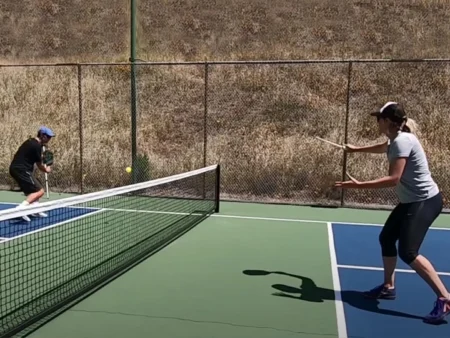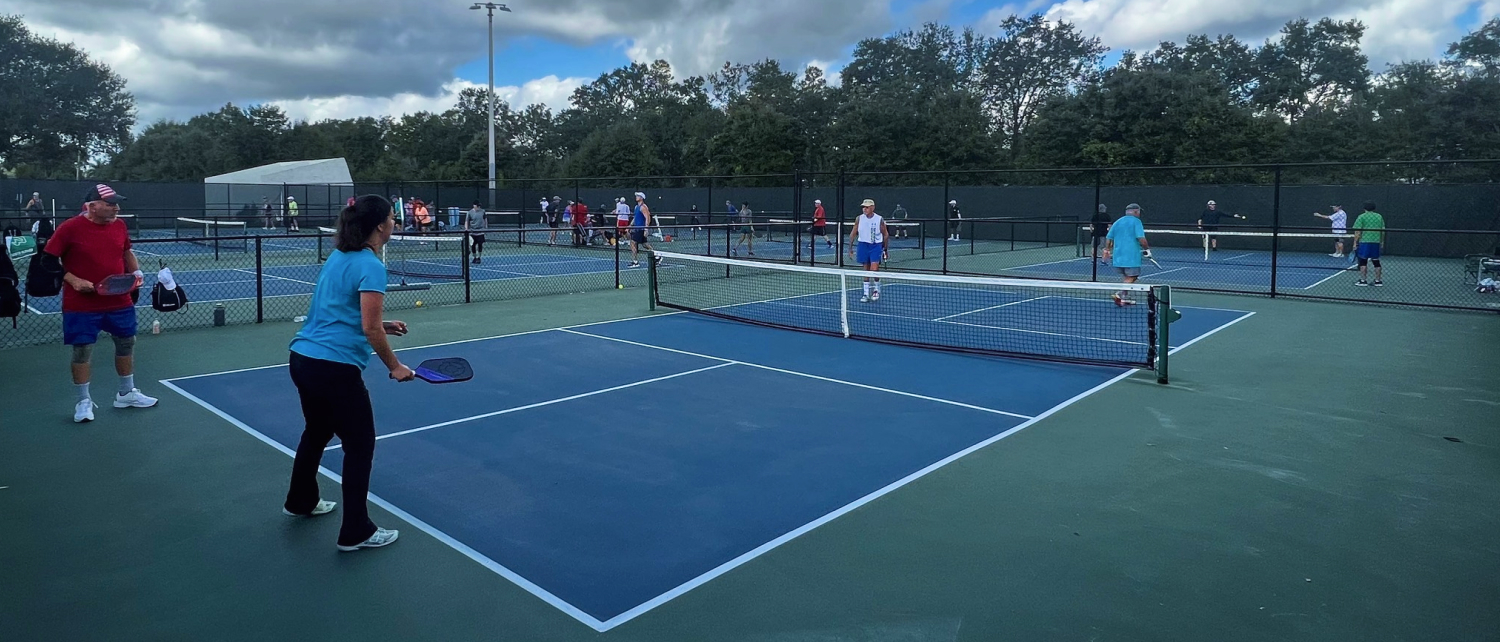Your cart is currently empty!

Professional pickleball players are the epitome of dedication and discipline when it comes to their sport. To maintain and improve their competitive edge, these athletes immerse themselves in rigorous training regimens that go well beyond casual play. The life of a pro pickleball player is often characterized by long hours of practice, which are crucial to mastering the game.
Daily Training Regimen
A typical day for a professional pickleball player begins with skill-specific drills. These drills, which span 2-3 hours, are meticulously designed to hone different aspects of their game — from serving and volleying to footwork and strategy. Each drill is a building block toward perfection, targeting weaknesses and transforming them into strengths. This type of practice is deliberate and intense, focusing on the minutiae that could make the difference between winning and losing.
Beyond the court, pros also commit to a comprehensive fitness regimen that includes at least an hour of additional exercise. This might comprise strength training, cardiovascular workouts, agility exercises, and stretching routines. The goal here is to build a body that can withstand the rigors of the game and recover quickly.
The Professional Lifestyle
For elite players like Ben Johns, practice sessions are just one part of the daily grind. These athletes often share glimpses into their routines, giving fans and aspiring players a snapshot of the dedication required to reach the top echelons of the sport. However, it’s important to recognize that there is no one-size-fits-all routine. Each player’s schedule is tailored to their specific needs, goals, and physical requirements.
During the competitive season, the frequency and intensity of practice can increase. Yet, it’s the off-season that often differentiates the good from the great. Contrary to what one might expect, the off-season doesn’t equate to downtime for these athletes. As indicated by the Professional Pickleball Association (PPA) Tour, the off-season is peppered with its own set of challenges and training demands. The eight-week hiatus from tournaments isn’t a break but a period of strategic improvement and focused training. Pros utilize this time to refine their skills, condition their bodies, and often, recover mentally and physically from the demands of a grueling tour schedule.
Tailoring Training to Individual Needs
The approach to practice and training in professional pickleball is highly personalized. While some players might thrive on lengthy sessions that push their limits, others may find shorter, more intense sessions to be more beneficial. Factors such as age, fitness level, technical skill, and even the style of play can greatly influence a player’s training routine.
This customization extends to managing the fine balance between training, competition, and rest. Overtraining can be just as detrimental as undertraining, leading to burnout or injury. Hence, pros often work with coaches, trainers, and physical therapists to craft training programs that allow for optimal performance and adequate recovery.
The Role of Competition and Recovery
Competitive play itself serves as a form of high-intensity training, with matches providing an opportunity for players to apply and test the skills developed during practice. For instance, a high-stakes match against a top-ranked opponent can reveal the effectiveness of a particular shot or strategy honed over countless practice sessions.
Yet, practice and match play alone aren’t enough to sustain a professional athlete. Recovery is equally vital. Adequate rest, proper nutrition, and mental health are integral to a player’s success. Pros often integrate yoga, meditation, and other mindfulness practices into their routines to maintain a well-rounded approach to their health and well-being.
Meeting Exercise Guidelines
Interestingly, while the pros’ training routines are rigorous, recreational players can still derive health benefits from pickleball without matching a pro’s intensity. Playing around 4.5 hours a week can help meet general exercise guidelines, offering a mix of cardiovascular, agility, and strength benefits. This aspect makes pickleball an appealing sport for individuals at all levels seeking a fun and effective way to stay active.
The life of a professional pickleball player is a testament to the saying, “You get out what you put in.” The countless hours of practice, the meticulous planning of training sessions, and the unwavering focus on improvement are what elevate these athletes to professional status. For anyone looking to excel in pickleball, or any sport for that matter, the pros offer a blueprint for success: dedicate time to practice, tailor your training to your needs, and always make room for recovery. Whether you’re aiming to become a professional or simply looking to enjoy the game, the principles of dedication, discipline, and balance remain universally applicable.



